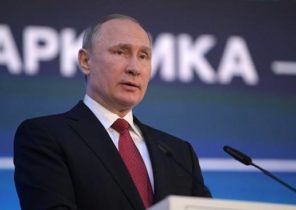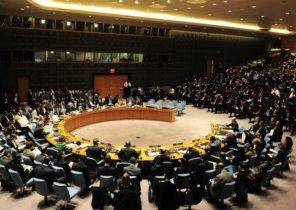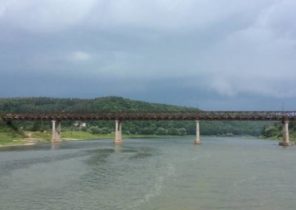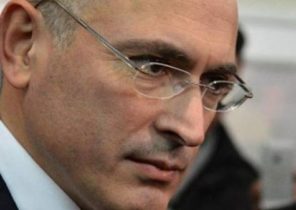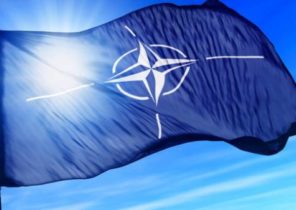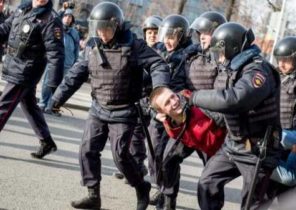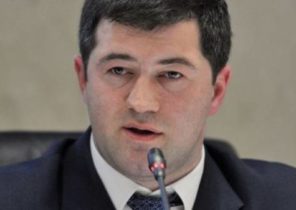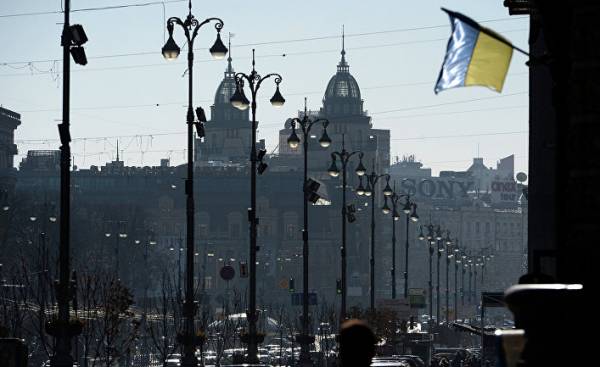
6-7 April the 10-th Kyiv security forum. This important conference on international Affairs, which is annually organized by the Fund “Open Ukraine”. The conference is chaired by former Prime Minister Arseniy Yatsenyuk and his wife Theresa stressed one important point: the West needs to maintain security in the border lands between Russia and Central Europe, especially in Ukraine, which is the most important country in Eastern Europe between the Baltic and Black seas.
This year’s tenth conference was held under the title “Old conflicts and new trends: strategies for a changing world.” For today’s Ukraine security concerns related to the ongoing war in the East, with the occupation of Crimea, with attempts by the new us administration to define its position, as well as the ongoing European crisis and the weakness of Europe.
The conference was attended by important political figures, which underlines its importance. Its participants appealed to the President Petro Poroshenko, Prime Minister Volodymyr Hroisman and foreign Minister Pavlo Klimkin. The conference was also addressed by Prime Ministers of Estonia, Lithuania and Latvia (jüri Ratas, Saulius Squirrels and Maris Kuchinskis). Deputy Secretary General of NATO rose Guatemalan (Rose Gottemoeller) represented the Alliance, and the U.S. Ambassador Mary Jovanovich (Marie Yovanovitch) addressed the conference with a speech.
Russia was represented by three opposition leaders: a former Duma Deputy Ilya Ponomarev voted against the annexation of Crimea and now living in Kiev, a prominent political analyst and a former senior researcher at the Brookings institution Lilia Shevtsova and Andrei Zubov who was fired from MGIMO for the fact that he spoke out against Russian aggression in the Crimea.
The forum was opened that day, when the European Parliament voted for cancellation of visas for Ukrainians visiting the EU. However, European countries still lack a common position on Ukraine, which plays into the hands of Moscow. Some populist and far-right parties of France and Italy, such as “national front” marine Le Pen and the “five star Movement”, took the openly Pro-Russian position.
The forum showed three important things. First, Ukraine will be strong. All the Ukrainian speakers expressed their willingness to fight and die for their country. Responding to a question from the audience, the representatives of military departments of Slovakia and Lithuania stated that in their countries people will sacrifice life for the sake of independence. However, participants expressed doubts about the determination of Western Europeans.
Second, the Intermarium, what is the part of Eastern Europe from the Baltic to the Black seas, which includes the Baltic countries, Belarus, Ukraine and Moldavia, gradually konsolidiruyutsya. Cooperation between poles, Ukrainians and Baltic States reached a historic high. In strengthening this strategic territory, which is opposed to Russian pressure, the important role played by Romanians and Bulgarians. However, their ability to resist the aspirations of Moscow depends on the NATO and American support.
Europe and the United States lacks a clear understanding of the history and geography of Ukraine and its environment lead to the promotion of Russia to the West. This promotion began in the 15th century, Ivan III, who conquered the Novgorod Republic, the only democratic state that has ever existed on Russian soil. Then followed a bloody purge and relentless expansion to the West, where a century later Ivan the terrible fought against the Swedes. In the 18th century, the Russian Empire gradually destroyed the Commonwealth, and with it the independent protogosudarstva Ukrainian Cossacks.
Russia will always treat the countries in the West, such as Ukraine, Belarus, Moldova and the Baltic States, in the best case as to the buffer zone, and at worst as its economic, military and cultural expansion. Western leaders should keep this in mind.
Partly the relative exclusion of the EU due to lack of funding. The military budgets of European countries with few exceptions are still less than two percent of their GDP, although this target was set at the NATO summit in Wales in 2014. Without increasing defense spending, Europeans have to rely on the United States that have other priorities, starting with North Korea and the South China sea, and ending with Iran and Syria. European countries, especially Germany, must begin to allocate funds for security on its Eastern borders.
Third, and most important: Western policy towards Ukraine needs American leadership. Kyiv security forum showed that Germany, Italy, France and Britain have different priorities with respect to Russia and Ukraine. If the administration trump does not appear a clear understanding of what American national interests, priorities, and what is American leadership in terms of cooperation with NATO and with its allies, Ukraine may become a hot spot with far-reaching consequences.
10-th Kyiv security forum performed several tasks, and above all, he clearly showed that Ukraine is ready to long-term struggle. But it also showed that even such a well organised event can not replace political leadership and military power. This can give the United States and its NATO allies.
Ariel Cohen is a nonresident senior fellow at the Atlantic Council (Atlantic Council), CEO of International Market Analysis Ltd.

